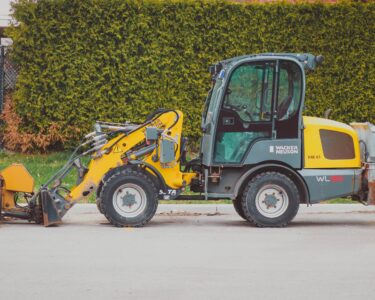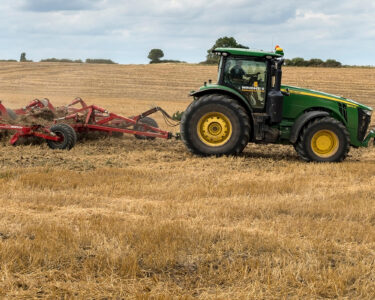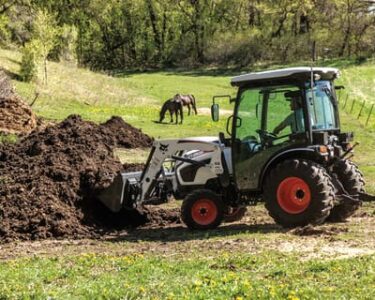The Future of Tractors: Trends and Innovations
The agricultural industry’s workhorse, tractors, have seen substantial development over time, and new and exciting developments are on the horizon. In this post, we’ll examine the most recent technical developments in tractor design, such as electric and autonomous tractors, as well as smart farming software, which are changing the face of farming.
Autonomous Tractors
The creation of autonomous or driverless tractors is one of the most important developments in tractor technology. These tractors run autonomously thanks to cutting-edge sensors, GPS, and artificial intelligence.
Benefits:
- Increased Efficiency: Autonomous tractors can work around the clock, optimizing work schedules and reducing labor costs.
- Precision Farming: They can perform tasks with pinpoint accuracy, from planting and harvesting to weed control and soil sampling.
- Reduced Environmental Impact: Autonomous tractors can follow optimal routes, minimizing fuel consumption and soil compaction.
Electric Tractors
The shift toward sustainability is driving the development of electric tractors. These tractors are powered by electricity, typically from batteries, and offer several advantages.
Benefits:
- Reduced Emissions: Electric tractors produce zero emissions, contributing to cleaner air and reduced greenhouse gas emissions.
- Lower Operating Costs: Electricity is generally cheaper than diesel or gasoline, resulting in cost savings for farmers.
- Quiet Operation: Electric tractors operate quietly, reducing noise pollution on farms.
Smart Farming Applications
Smart farming is revolutionizing agriculture, and tractors are at the forefront of this transformation. Here are some smart farming applications integrated into tractors:
1. Precision Agriculture:
- Tractors equipped with GPS and sensors enable precise planting, fertilization, and irrigation, optimizing resource use.
2. Telematics and Remote Monitoring:
- Tractor data, such as fuel consumption and engine performance, can be remotely monitored and analyzed, allowing for proactive maintenance and fuel efficiency improvements.
3. Data-Driven Decision-Making:
- Tractors collect data on soil conditions, weather, and crop health, empowering farmers to make informed decisions and maximize yields.
4. Connectivity:
- Tractors are becoming increasingly connected, allowing for seamless data sharing between tractors, farm management software, and other equipment.
Hydrogen-Powered Tractors
Hydrogen-powered tractors are another emerging trend in the industry. These tractors use hydrogen fuel cells to generate electricity for propulsion.
Benefits:
- Zero Emissions: Like electric tractors, hydrogen-powered tractors produce zero emissions and contribute to a cleaner environment.
- Longer Operating Range: Hydrogen fuel cells offer longer operating ranges compared to batteries, making them suitable for large farms.
Conclusion
The future of tractors is marked by innovation and sustainability. Autonomous tractors are revolutionizing labor-intensive tasks, electric tractors are reducing emissions, and smart farming applications are enhancing efficiency and productivity. As these trends continue to evolve, tractors will play a pivotal role in meeting the growing demand for food production while minimizing the environmental impact of agriculture.
FAQs
Q1. Are autonomous tractors already in use on farms?
A1. Yes, autonomous tractors are in use on some farms, especially for tasks like planting and harvesting. However, widespread adoption is still in progress.
Q2. How long can electric tractors operate on a single charge?
A2. The operating range of electric tractors depends on factors like battery capacity and workload. Some models can operate for several hours on a single charge.
Q3. Are smart farming applications compatible with older tractor models?
A3. Some smart farming technologies can be retrofitted onto older tractor models, but compatibility may vary. Newer tractors often come equipped with built-in smart features.
Q4. What challenges do hydrogen-powered tractors face in terms of infrastructure?
A4. Hydrogen infrastructure, including production, storage, and distribution, is currently limited compared to traditional fuels. However, ongoing developments aim to address these challenges.



